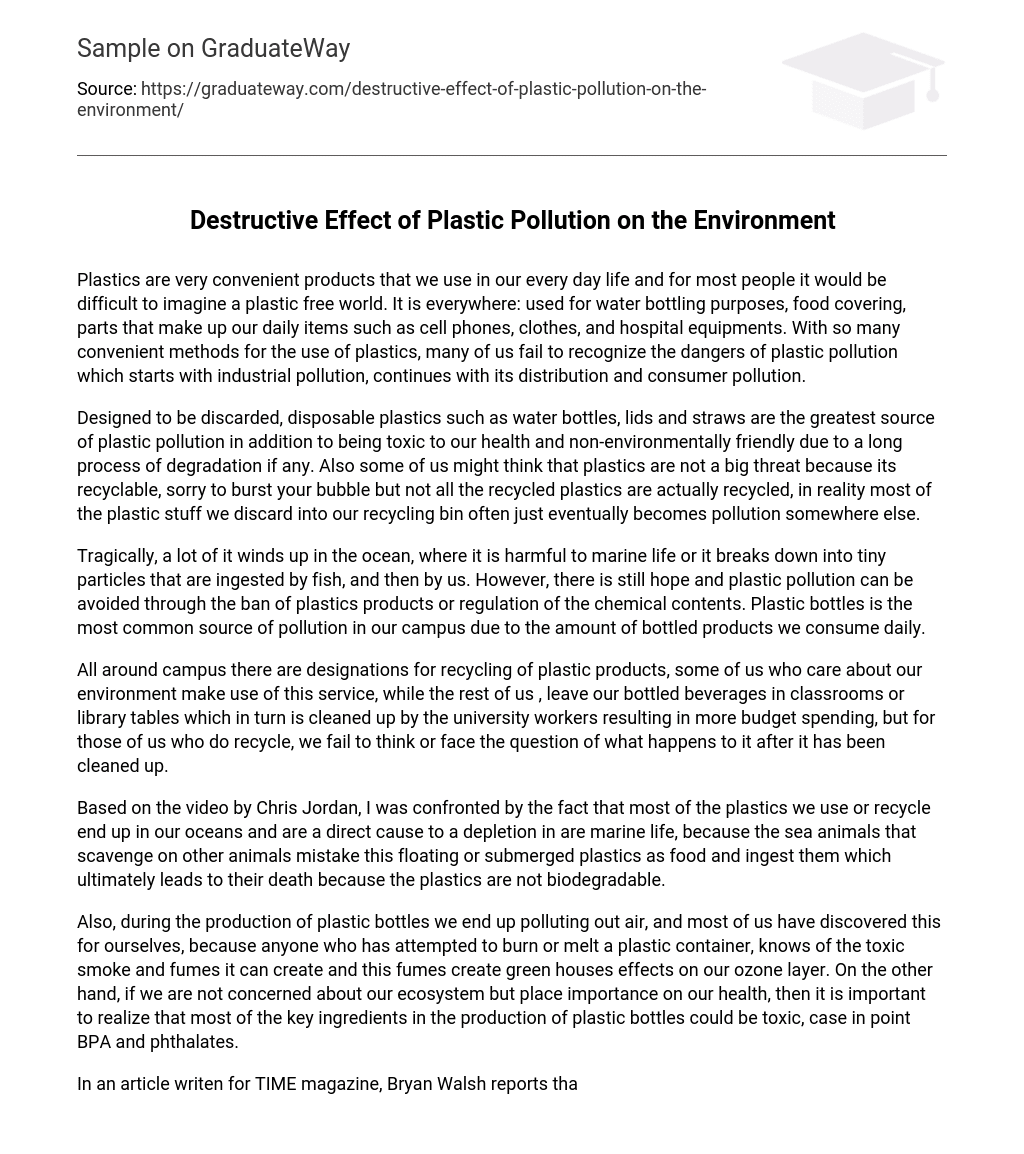Plastics are indispensable in our daily lives and have diverse applications. It is difficult to envision a world devoid of plastics given their extensive usage. Plastics are omnipresent, serving as packaging for water and food, and being integral parts of items like cell phones, clothing, and medical equipment. Nevertheless, the detrimental consequences of plastic pollution often go unnoticed despite its convenience. The dangers associated with plastic pollution originate from industrial sources and endure throughout its distribution and consumption by consumers.
Disposable plastics, such as water bottles, lids, and straws, are the primary cause of plastic pollution. These items have a slow decomposition process that poses risks to our health and the environment. While recycling is often seen as a solution, it’s important to acknowledge that not all recycled plastics are effectively repurposed. Consequently, many plastic items assumed to be recycled ultimately contribute to pollution in other locations.
Regrettably, a considerable quantity of plastic finds its way into the ocean, endangering marine life and possibly leading to fish consuming minuscule particles that could affect humans. Nonetheless, there is optimism for change through the enforcement of bans or regulations on plastic items and their chemicals. This would aid in preventing plastic pollution. Within our campus, plastic bottles serve as the primary contributor to this contamination due to our regular consumption of bottled products.
On campus, there are specific areas for recycling plastic products. While some individuals utilize this service, others choose to leave their bottled beverages in classrooms or on library tables. Consequently, university staff must clean up these locations and allocate additional funds from the budget. Nevertheless, those of us who frequently recycle rarely ponder over the fate of our recyclables following collection.
After watching Chris Jordan’s video, it became clear to me that a large amount of the plastic we use or recycle ends up in our oceans. This is a major problem because it directly contributes to the decline of our marine ecosystems. Sea creatures that rely on scavenging mistakenly consume the floating or submerged plastics as food without realizing it. Unfortunately, these plastics do not biodegrade naturally, resulting in the death of these marine animals.
While producing plastic bottles, we not only contaminate the air but also generate harmful smoke and fumes when trying to burn or melt a plastic container. These fumes contribute to the greenhouse effect on our ozone layer. Furthermore, it is crucial to acknowledge that numerous essential ingredients utilized in manufacturing plastic bottles, like BPA and phthalates, can be detrimental to our well-being.
TIME magazine reports that the CDC conducted a survey revealing 212 environmental chemicals detected in humans. The article highlights specific chemicals, like BPA and phthalates, found in plastic bottles, which can lead to developmental issues and disrupt our endocrine system. As these substances degrade and contaminate our food and water sources, they eventually infiltrate our bodies and accumulate over time.
Due to manufacturing companies claiming confidentiality and limited data from agencies, we lack complete knowledge about all the ingredients in plastic bottles. Therefore, it cannot be definitively stated that there are no other chemicals in plastic bottles that are more hazardous than BPA or Phthalates. Although plastics are praised for their energy efficiency, reusability, and hygiene benefits, Angela Logomasini highlights in her pro-plastic article for CQ research magazine that the health risks and environmental impacts linked to plastics outweigh their advantages.
We managed to survive in a time when plastics did not exist, and during that period, our health risks were minimal and the environment remained clean. In the event of a plastic ban, we can still find ways to adapt and continue to survive. Alternatively, we can also consider the advantages of convenience that plastic products offer and evaluate their impact on our well-being and the environment. In this case, we could work towards implementing stricter regulations on the chemical composition of plastics or explore alternative materials that are more environmentally friendly.
Plastic pollution is a global issue caused by the widespread use of plastic products. This includes the improper disposal of bottled water, leading to litter and pollution in oceans and rivers. The consequences are grave, as marine life suffers from plastic ingestion while the decomposition of plastic takes an incredibly long time, up to 1,000 years. Additionally, our consumption of plastic bottles directly contributes to the demand for oil, as it is a key ingredient in plastic production.





